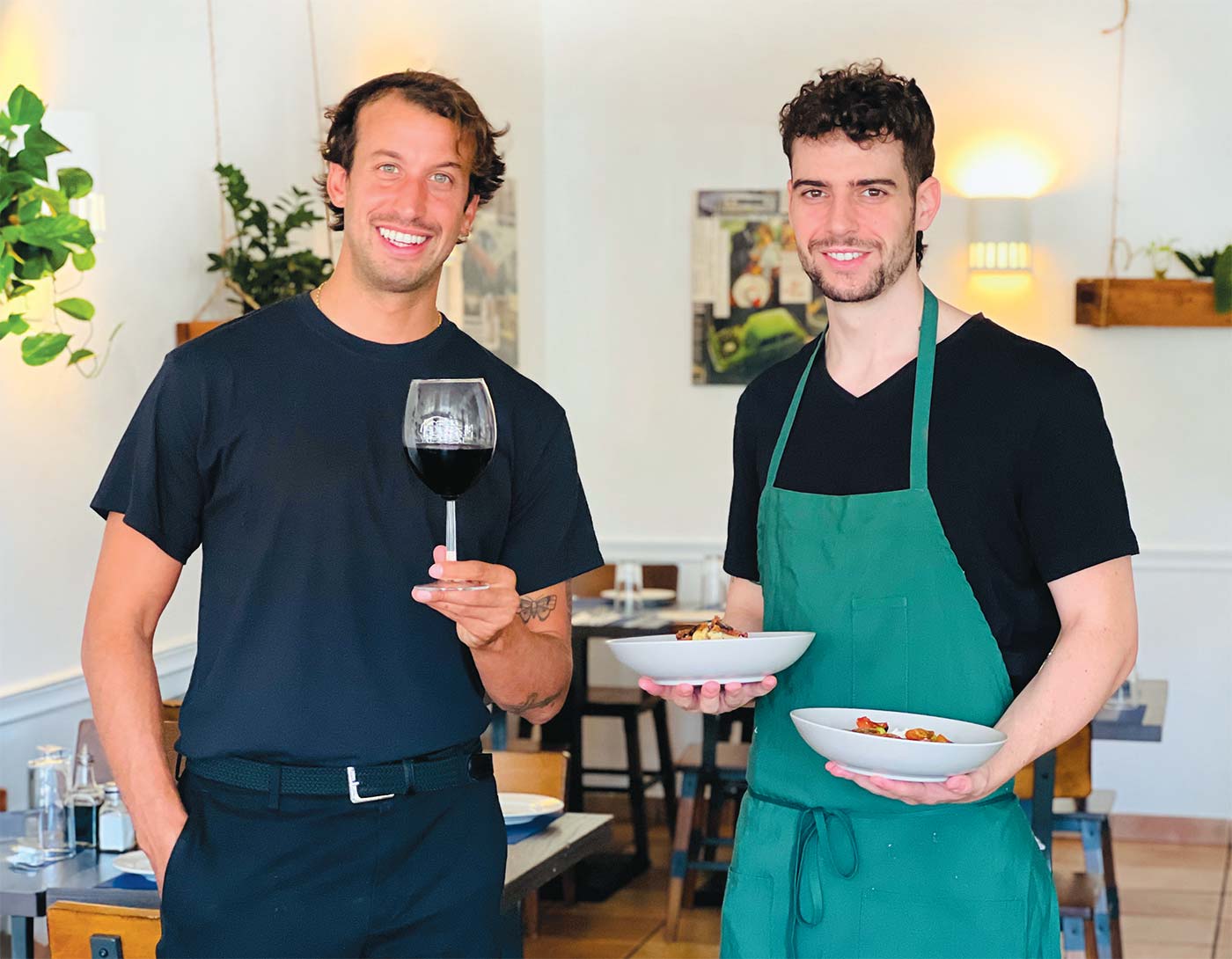It's Not About the Star: Cedro Restaurant
An osteria or a trattoria? Which is Cedro of Newbury Park?
Traditionally a trattoria is a small, intimate restaurant with a few carefully crafted dishes. An osteria is a wine bar that is more casual and has evolved to include a dish or two of food. These definitions have blurred over time, but Mattia Raimondi, one of the owners of Cedro, says it’s an osteria.
Tucked away in Newbury Park just off of the 101, Cedro—named for the citron fruit also known as Buddha’s hand—offers beautiful, carefully crafted plates of housemade pasta, salads, antipasto featuring cured meats from Italy, and some serious Italian favorites such as braised short ribs and chicken caprese Milanese. In its short time in operation, Cedro quickly received a Michelin Guide Recommendation and in August was upgraded to Bib Gourmand, one step below a star.
But it isn’t about the star, says co-owner and chef Matteo Di Nicola, who remembers the cedro fruits growing on the family’s farm, where the thick peel would be candied or used in liqueurs. He’s worked in Michelin-starred restaurants and says he prefers the lower stress of his own kitchen.
Both men knew each other growing up through their families, but it wasn’t until they arrived in the United States that they met up to form a restaurant—or osteria.
“We got reconnected here in the States,” says Raimondi. “In Italy we live on different sides. Matteo was working and I was working and traveling. We both came here at pretty much the same time.” The menu is the creation of Di Nicola, who grew up following his family tradition.
“My family always had a restaurant in Italy. As I grew up, I really liked it. I was in chef school in Italy for five years. Every year you have to go to a stage [internship]. The first stage was in Rome at a restaurant. There I learned a lot about typical Italian-style food,” says Di Nicola.
From there he went to Paris, where he was schooled in the finer techniques of classic cuisine. His path twisted through the Canary Islands before coming to the United States.
“For me, making food is what I really enjoy,” says Di Nicola. “I like to get in the restaurant and create new things. For me, it’s not like work. It’s like what making a painting is like for an artist. To cook is to relax.” Many of the classic Italian flavors are derived from ingredients from Italy, according to Raimondi. Even though some of the same ingredients are available here, it just isn’t the same.
“For example, tomatoes: We use some imported San Marzano tomatoes. The good thing is, every year there’s a little bit different taste. Some years it’s a little more sweet or sour. For these tomatoes we prefer to import San Marzano. But in salads and other special fresh uses we will use local [organic tomatoes],” Raimondi says. Di Nicola says he’s finding the American consumer to be relatively sophisticated about Italian cuisine.
“A lot of people have been to Italy for vacation,” he says. “This is the closest thing to the food there. Although portions are not as huge as they are in the United States, I would say this is a pretty good area [for culinary sophistication.]”
While business has been good since they opened in late January, they would like to see more.
“I think it’s going well. Customers appreciate the concept and food a lot. We see the same people coming back six or seven times,” says Raimondi. But before they think of expanding, they want to make sure the current restaurant is working well.
“For the future, we’d like maybe to expand once we know our first restaurant is strong enough—to be sure this is the actual model that we will be able to keep as an example. The intention is to make more good food—more good pasta without rushing too much. The intention is to have fun and do a good job. That’s the main mantra for business. The sky is the limit. We want to fly on a good airplane,” says Raimondi.
Cedro
2385 Michael Dr., Newbury Park
805-498-7035
www.CedroRestaurant.com




